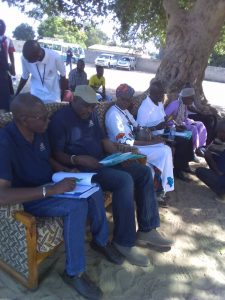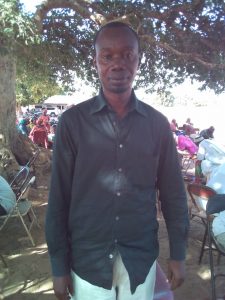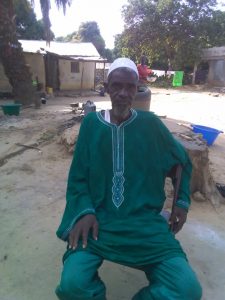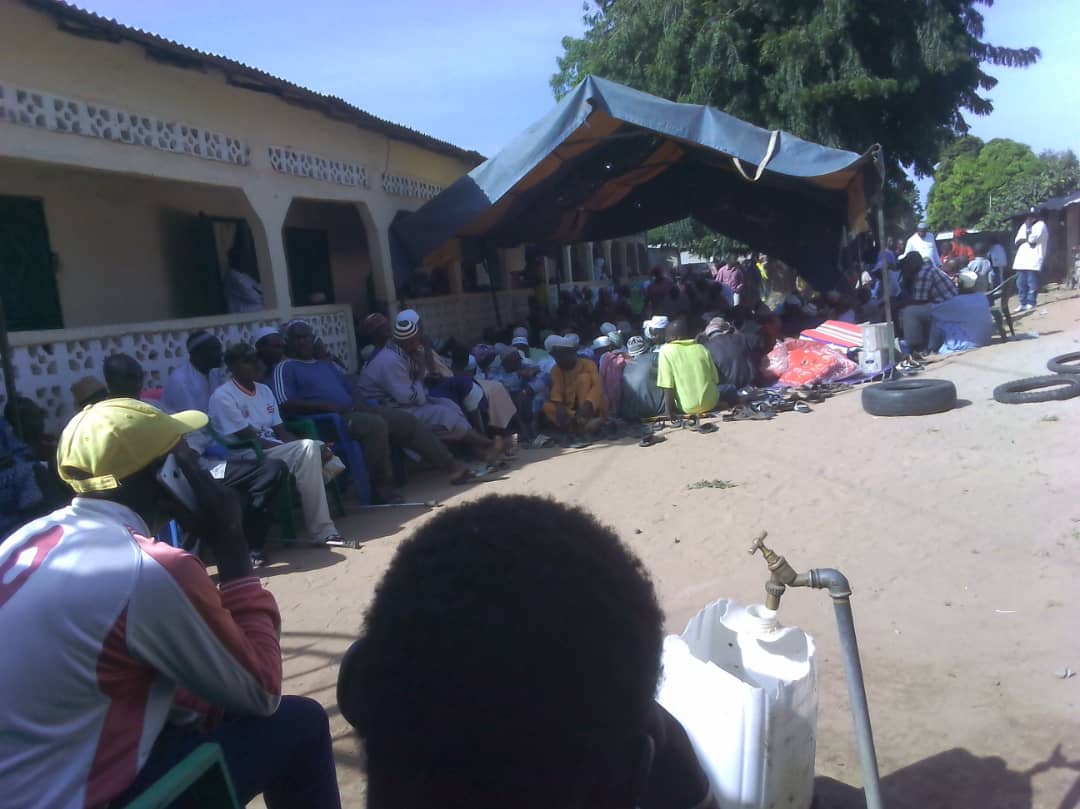By Kebba Ansu Manneh
As Gambians are deliberating on the future law that will govern their affairs in the wake of uprooting the twenty-two-year dictatorship of Yahya Jammeh, the question on who should be a citizen is one of the touchiest subjects in the debate for constitutional reforms.
Despite the strong feelings of nationalism throughout the country, citizens and non-citizens in rural Gambia are divided on who should be granted citizenship in the new constitution. On Monday, 5 November 2018, the Constitutional Review Commission (CRC), began a nationwide consultation which was dominated by the question of citizenship under the new constitution.
The unsettled, but polarizing subject, is the fate of people born in the country to parents with foreign nationalities. At the sidelines of the discussions, The Gambia Times surveyed the opinions of rural dwellers on the citizenship questions in the CRC questionaire. Our surveyed found two dominant positions held by respondents. Some people argued that people whose parents were not born in The Gambia should not be considered as Gambians by virtue of their birth in the country. Other people responded that anyone who was born on Gambian soil, regardless of the legal status of one’s parents, should be granted citizenship.

Ebrima Manneh, who travelled six kilometers from Bunaidu to attend the national consultation meeting in Essau, said he was passionate about constitutional reforms that he had to forgo attending to his crops in the farm to attend the meeting with members of CRC. Speaking on his views on the subject of citizenship for inclusion in the new constitution, Mr. Manneh said, “what I want the new constitution to address is the issue of citizenship. It should identify who is a first-class citizen, second-class-citizen, and third-class citizen.”
Mr. Manneh defined first-class citizens as those whose grandparents were born in The Gambia, second-class citizens as those born to one parent born in The Gambia, and third-class citizens as people born to parents who were not born in The Gambia.
According to him, The Gambia should emulate Libya and other countries where only first-class citizens are allowed to participate in elective positions, adding that government should give greater priority to the first-class citizens than the second-class, and third-class citizens.
“During the past political impasse many people deserted the country, it was only the first-class citizens who stayed because they have nowhere to go. Priority should be given to the first-class citizens if we have to preserve our identity and culture,” Mr. Manneh told The Gambia Times.
The Gambian nationality, Mr. Manneh continues, should not be acquired cheaply because it signifies our identity and culture, and even more importantly our roots. He wants the new constitution to be clear on nationality. Rationalizing that his position on citizenship is the standard in many countries around the world, Mr. Manneh argued “there are Gambians who are in other countries for many years, but they are not citizens of those countries. Yes, they can give them resident permits, but they cannot vote there.”
In responding to the question whether peoples who are born to alien parents should be considered citizens, Mr. Manneh responded that “The Gambia as a country failed in addressing this issue, and now is the opportunity to address this issue if we are to succeed. In every country there are citizens and aliens, and if you stay in the country for more than fifty years you don’t regularize your status then you have no interest in the country.”
Alhasan Bah, the Alkali of Mayamba village in Lower Nuimi located in the North Bank Region of the country differs in opinion with Mr. Manneh. He said as local government official, he has been trying to address this issue for many years. He argued that people who have been living and contributing to the development of this country for more than a decade should be given citizenship.

According to the Alkali of Mayamba, “majority of The Gambia’s development is started by foreigners and people who contributed immensely towards the development of this country. Such people should be considered as citizens especially if they don’t have any trace of criminal records.”
He continues that it doesn’t make sense to deny people citizenship when they built up families here, adding that The Gambia should not be an exception in granting citizenship to foreigners who stayed in the country for more than ten to fifteen years. He added that”there are lot of people who have been living in The Gambia, even in my village, who don’t have a single Gambian document, there situation should be considered for all they know is here (The Gambia).”
Alkali Bah called on the Gambian authorities to be very flexible on the issue of citizenship, noting that if the issue is not handled with care many foreigners who owns businesses in the country would be forced to leave the country which may be detrimental to the economy.

Despite his support for granting citizenship to immigrants, Mr. Bah calls for a thorough scrutiny of all applicants who want to become Gambian citizens. He adds that a reputable citizen should attest to the application of applicants before citizenship is issued to any foreigner.
Alpha Sainey Jallow, a 65 year-old-Guinean national who immigrated to The Gambia in 1984 and now has five children all born in the country, told The Times that he has tried on several occasions to acquire Gambian citizenship to no avail. He lamented that even though his kids were all born in The Gambia and have no criminal records in the country, he’s still not been granted the citizenship of The Gambia.
According to him, The Gambia government should consider his application together with many others who have been living in The Gambia for more than a decade. He argued that many immigrants in the country have no criminal records, and that they have been contributing to the development of this country. Mr. Jallow appealed to The Gambian authorities to look into their concerns by granting citizenship to the immigrants and their children who really deserved it.

